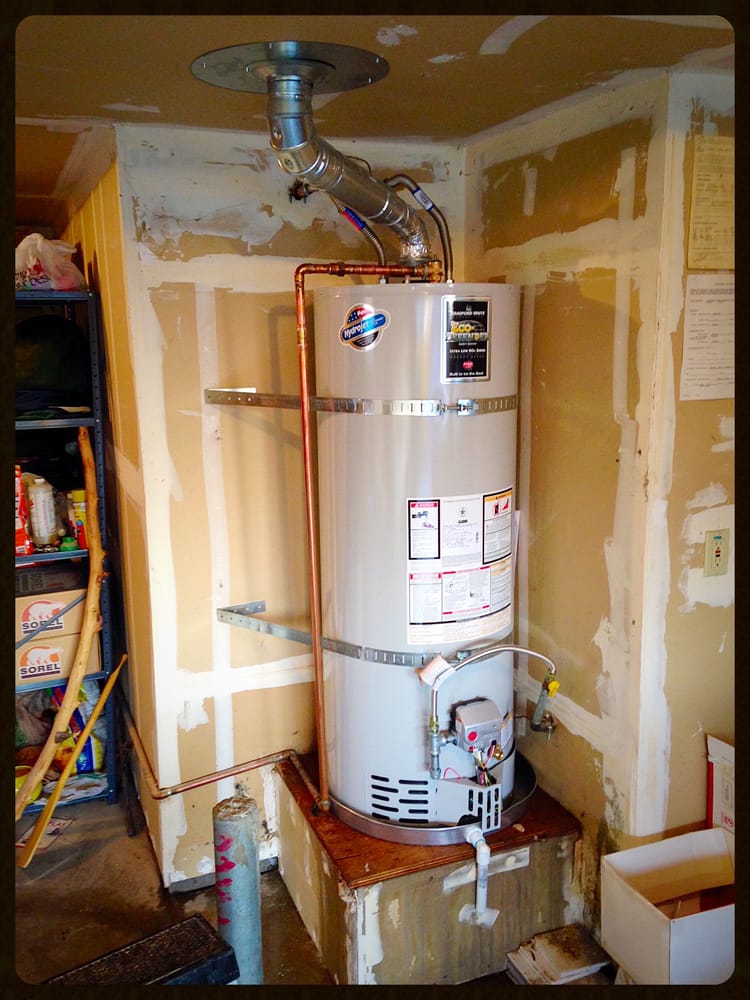Gas Leak Repair by Certified Technicians for Maximum Safety at Home
Wiki Article
Total Overview to Water HeaterSetup and Substitute
Recognizing the intricacies of hot water heater installation and replacement is vital for homeowners looking for to guarantee performance and reliability in their hot water supply. From choosing the suitable kind and size to implementing a smooth installation process, several aspects have to be considered to avoid typical mistakes. This overview will certainly give you with the necessary steps and insights to navigate the complexities of this home improvement task, while additionally stressing important maintenance methods that can extend the life of your system. As you check out these elements, you may locate yourself reassessing your current arrangement and identifying areas for improvement.Types of Hot Water Heater
When considering water heating system installment and substitute, it is vital to recognize the different types of hot water heater readily available in the market. One of the most typical kinds consist of storage tank hot water heater, tankless hot water heater, warm pump water heaters, and solar hot water heater.Tank water heating units are traditional systems that keep a particular quantity of warm water, making them readily offered when needed. In comparison, tankless water heaters offer warm water on demand, eliminating the requirement for storage.
Warm pump water heaters make use of electrical power to move warmth from the air or ground to heat water, using significant energy cost savings yet requiring more area and details installation conditions. Finally, solar water heating systems harness solar power to warm water, supplying an environmentally friendly choice with possible lasting price financial savings, although they typically require a backup system for over cast days.
Recognizing these options guarantees informed choices regarding installment and replacement, dealing with specific demands and preferences.
Picking the Right Dimension
Picking the appropriate dimension for a water heating system is vital to make sure ideal performance and efficiency. A device that is as well small will certainly have a hard time to satisfy household needs, causing inconsistent warm water accessibility and boosted power usage. Conversely, an extra-large hot water heater can cause unneeded energy waste and greater utility costs.To establish the best size, take into consideration the home's optimal hot water use. This can be calculated based upon the number of passengers and their common warm water demands. For instance, a household of four may call for a water heater with an ability of 50 to 80 gallons, relying on the use patterns, such as synchronised showers and laundry.
Additionally, examine the recovery price, which gauges how promptly a heating unit can restore warm water after it has been used. For tankless versions, concentrate on the circulation price, determined in gallons per minute (GPM), to ensure it satisfies the house's simultaneous need.

Installment Process Summary
:max_bytes(150000):strip_icc()/replacing-a-water-heater-1824920-hero-20747e5013dd49ef8e7bd63c2bf5c386.jpg)
Following, the old unit must be separated and gotten rid of, making sure to comply with neighborhood codes and guidelines regarding disposal. Once the old system is out, the brand-new water heating unit can be placed in area. This action entails attaching the supply of water lines, ensuring that all installations are safe and secure and leak-free.
After establishing water links, it's important to connect the power supply, whether electric or gas, following the manufacturer's directions diligently. As soon as all links are made, the system needs to be loaded with water, and the power can be turned back on. It's essential to examine for leaks and ensure the water heater is working properly prior to finishing the installment procedure.
Usual Setup Mistakes

An additional frequent blunder is ignoring to follow neighborhood codes and laws. Falling short to stick to these standards can not just lead to safety hazards but may also cause costly fines or the need for expensive reinstallation. Furthermore, incorrect airing vent is an essential concern. Poor ventilation can trigger hazardous gas build-up, posing significant wellness risks.
Falling short to safeguard connections or using the incorrect kind of fittings can lead to leaks and water damage. By preventing these common installment blunders, property owners can guarantee their water heating system operates securely and effectively, making the most of performance and longevity.
Upkeep Tips for Longevity
Correct maintenance of a water heating system is important for its durability and ideal performance. Routine assessments and servicing can hop over to these guys protect against expensive fixings and expand the home appliance's life-span. Begin by inspecting the temperature setting; it must normally be established between 120 ° F and 140 ° F for ideal power performance and safety and security.Every six months, flush the tank to eliminate debris build-up, which can hinder home heating performance and create rust. To do this, switch off the heating unit, attach a hose to the drain valve, and allow the look at here now water run up until it is clear.
When they are rusted,Anode poles must be checked annually and replaced. These rods aid prevent tank corrosion by attracting harsh elements in the water.
Additionally, examine the pressure alleviation shutoff routinely to guarantee it is operating appropriately. This valve is important for avoiding too much stress build-up within the tank.
Lastly, think about setting up an expert maintenance check every few years for detailed inspections and maintenance. By sticking to these maintenance pointers, home owners can considerably enhance the efficiency, safety, and life expectancy of their hot water heater, ensuring dependable warm water for several years to come.
Conclusion
In final thought, correct setup and maintenance of water heating systems are essential for guaranteeing efficiency and durability. By understanding these necessary facets, property owners can accomplish a reputable hot water supply while minimizing prospective issues related to water heating system operation.Comprehending the ins and outs of water heater installment and replacement is critical for homeowners looking for to guarantee efficiency and reliability in their hot water supply.Container water heating units are traditional systems that store a particular quantity of warm water, making them conveniently available when required. In comparison, tankless water heating units provide warm water on demand, removing the requirement for storage space. Selecting a water heater that is either as well tiny or also big can lead to inefficiencies, resulting in poor hot water supply or too much power intake.
By understanding these crucial elements, homeowners can attain a trustworthy warm water supply while reducing potential concerns related to water heater procedure. plumber Denton.
Report this wiki page